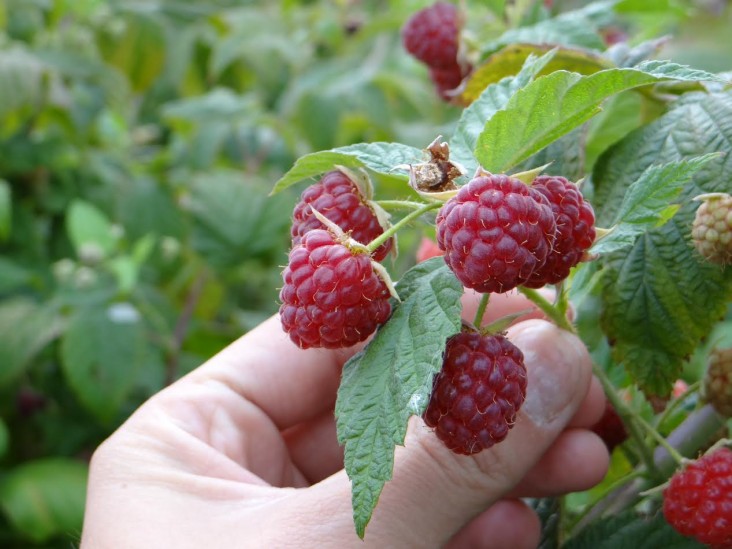
November 2015—Raspberry cultivation is a fast growing and lucrative business in Kosovo. This is very good news in a country that has one of the highest unemployment rates and one of the lowest rates of exports in Europe.
Agim Veliu, the mayor of Podujevë/o, noted that several years ago, scientific studies indicated the soil and climate in his municipality would be ideal for growing raspberries. As USAID was looking to build public-private partnerships to improve farm incomes, he strongly threw his municipality’s support behind the initiative.
Through a cost-sharing arrangement with the municipality, USAID provided 28 farmers with 160,000 raspberry plants in spring 2014, while the municipality provided these farmers with irrigation equipment. To support the local raspberry growers, USAID assisted in the establishment of a raspberry association and facilitated sales for the farmers, providing market linkages with European buyers. As a result, the vast majority of raspberries produced in the municipality this year were exported.
Aferdita Murati, a farmer in Podujevë, used to live with her family in Croatia doing seasonal work with various fruits and vegetables. Before, they were just making ends meet. They are proud to have returned to Kosovo and, after just a year of growing raspberries on their own land, they plan to expand the area they are cultivating next year.
Her children are studying finance and helping with the family business to take best advantage of their fertile soil. Plans for the future include employing as many women and students as possible to help them improve their income, too.
“I would recommend to everyone to cultivate raspberries. This is a clean crop, and the profit is great,” said Mysafere Bryma, a raspberry farmer who also produces her own jam.
A few years ago, raspberries were a marginal crop in Kosovo, grown only in small quantities for local consumption and rarely commercialized. USAID, through its Agricultural Growth and Rural Opportunities program, identified raspberries as one of several fruits and vegetables with the most economic potential.
USAID introduced new varieties of raspberries, which greatly lengthened the growing season, along with new ways of cultivating, packaging and marketing the fruit. These interventions are bringing about dramatic increases in the quality and quantity of raspberries, the yield per plant, the number of workers needed to tend the plants—and incomes for both seasonal workers and farm owners.
Around 400 hectares of raspberries are currently under cultivation in different regions throughout Kosovo. USAID assistance to 500 raspberry producers has significantly increased yields per hectare, and overall sales almost tripled from last year. From 1 hectare of raspberries, a farmer this year could expect about $11,950. About 1,500 seasonal workers were employed this year to help produce Kosovo’s 1,100 tons of raspberries, 98 percent of which were exported abroad.
Kosovo Prime Minister Isa Mustafa praised the economic results and continued potential of raspberries at this year’s Raspberry Promotion Day event in Podujevë/o.
Alban and Albana Hasani, two siblings among five working on the family raspberry farm owned by their father, note that this year has been much better than last. Though she plans to become a teacher, Albana intends to remain involved in growing raspberries in some form—and Alban has chosen agriculture as his profession. Their family previously grew grains, but now they intend to expand their raspberry farm and process the fruit for added income.
The municipality of Podujevë/o plans to dedicate approximately $108,600 in next year’s municipal budget to further expand raspberry production. Other municipalities also intend to continue their partnership with USAID and raspberry farmers to continue expanding the sector and providing more jobs for the people of Kosovo.
USAID’s five-year Agricultural Growth and Rural Opportunities program, which started in spring 2015, aims to develop a more competitive agricultural sector in Kosovo through technical assistance and grants to farmers, enterprises and other organizations in targeted value chains.
LINKS
Follow @USAIDKosovo. on Facebook, on YouTube







Comment
Make a general inquiry or suggest an improvement.